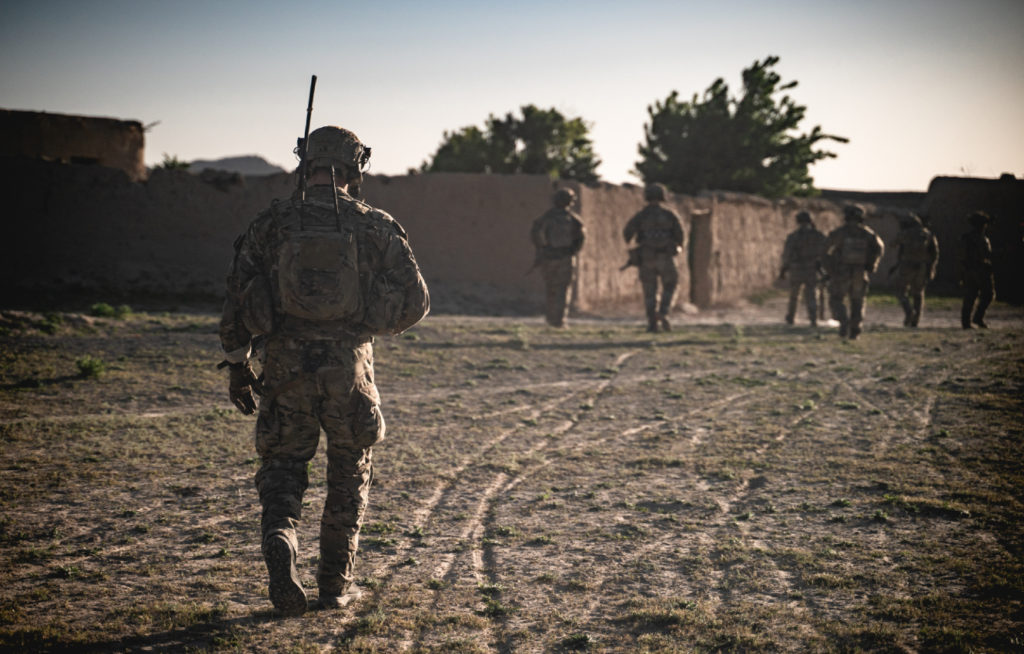
The peace deal brokered between the US and Taliban—courtesy the sterling role played by Pakistan to bring the two sides on the table—on February 2020 had raised the hopes for the end of a nearly two-decade-old conflict in Afghanistan. But unfortunately, things did not unfold as envisaged. Immediately after the deal was announced, President Ashraf Ghani refused to accept the swap of prisoners which was a precondition for the commencement of intra-Afghan dialogue on March 10, 2020 in Oslo, Norway.
This development led to a surge in attacks by the Taliban on government security forces. In the 45 days after the agreement, the Taliban conducted more than 4,500 attacks in Afghanistan. On June 22, 2020, Afghanistan reported its bloodiest week in 19 years during which 291 members of the Afghan National Defence and Security Forces (ANDSF) were killed and 550 others wounded in the 422 attacks carried out by the Taliban. At least 42 civilians, including women and children, were also killed and 105 others wounded by the Taliban across 18 provinces.
It was in this backdrop of enhanced violence in Afghanistan that on July 1, 2020, the US House Armed Services Committee overwhelmingly voted in favour of a National Defence Authorisation Act amendment to restrict President Trump’s ability to withdraw US troops from Afghanistan.
The second round of talks commenced on January 5, 2021 but regrettably no progress has been made on substantive issues. The Taliban did not agree to ceasefire and continued with their attacks. They accused the US of not keeping its side of the agreement while the former put the blame on them. It was in the backdrop of this situation that the Biden’s administration declared to review the Peace deal. Biden’s national security adviser, Jake Sullivan, said in January 2021 that the United States would review the peace agreement to withdraw its remaining 2,500 soldiers from Afghanistan by May 2021.
The US has come up with a new peace plan and its special envoy for Afghanistan has discussed it with Taliban leaders at Doha and also has met with COAS General Bajwa on March 7, along with General Austin Miller—commander of the US forces in Afghanistan—to enlist Pakistan’s support for the new initiative. Earlier, he was in Kabul where he shared the roadmap developed by the Biden administration to advance the peace process.
The US Secretary of State, Anthony Blinkin also wrote a letter to Afghan President Ashraf Ghani, outlining a four-point plan for the Afghan endgame. The plan includes a UN-sponsored meeting for foreign ministers of Pakistan, Iran, Russia, US, China and India to adopt a ‘unified approach” on Afghanistan, a new inclusive government which would supervise the national elections and a 90-day ceasefire.
Meanwhile, Russia has also launched an initiative to host a conference of representatives from Pakistan, China, Iran, US as well as the Afghan government on 18 March as part of an attempt to break the deadlock in the slow-moving peace process. Pakistan has already agreed to participate. According to the Russian foreign ministry, the focus of the conference would be on ways to help advance intra-Afghan talks in Doha, reducing the level of violence to end the armed conflict and helping Afghanistan to develop as an independent, peaceful and self-sufficient state that would be free from terrorism and drug trafficking. It is pertinent to point out that Russia had also hosted a similar meeting in Moscow 2018 where the Afghan Taliban were, for the first time, given an international stage. The US attended the meeting as an observer.
It is needless to emphasise that Pakistan, Russia, China and Iran have an abiding stake in peace in Afghanistan and there is a general consensus among them on the peace process culminating in a political settlement. They recognise Taliban as a legitimate political entity enjoying public support in Afghanistan. They have a resolve to not allow Afghanistan to slip into civil war which will have its fallout for them as well due to their geographical proximity with it.
Pakistan undoubtedly has the highest stake in peace in Afghanistan as it is inextricably linked to peace within its own territory and the elimination of the scourge of terrorism. Pakistan as a frontline state in the war against terror, has suffered the most in terms of men and material and it would be the last country to wish the continuation of strife in Afghanistan.
My considered view all along has been that the regional countries have a greater stake in peace in Afghanistan and can better ensure the implementation of the settlement plan that would emerge as well as provide iron-clad guarantees to ensure that it would hold.
The Taliban and the Afghan government must also adopt flexibility in their taken positions keeping in view the long-term interests of Afghanistan. They should not let this opportunity go waste. They owe it to the people of Afghanistan to restore peace in the country. The Taliban must agree to a ceasefire, paving the way for furthering the peace process on agreed lines and the Afghan government must also give up its insistence on its mandated tenure. They must realise that the US, in spite of its commitment to leave Afghanistan, would not make an exit before a political settlement is reached between the Taliban and the Afghan government.
Malik Muhammad Ashraf
The writer is a freelance columnist. He can be reached at ashpak10@gmail.com.
Source: https://nation.com.pk/12-Mar-2021/ending-conflict-in-afghanistan


